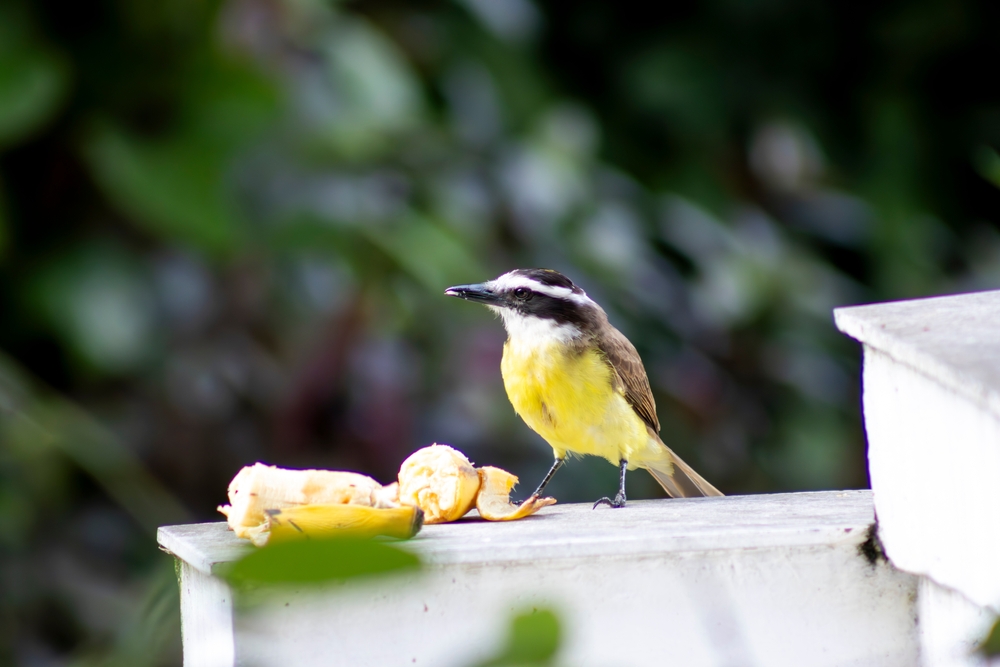 #Columns
#Columns
The crisis and extinction of experience
Disconnection with nature is at the heart of climate change and its impacts on biodiversity and health
 Image: Shutterstock
Image: Shutterstock
Since 2008, the majority of the world’s population has lived in urban areas. As a result, fewer and fewer people have contact with natural environments in their daily lives. Less exposure can result in less familiarity with the natural world, which can lead to a greater feeling of disconnection from nature, a phenomenon known as the “extinction of experience.”
In addition to the urbanization process, the growing use of digital technology has influenced the relationship between human beings and nature, as if there were a dichotomy with humans on one side and nature on the other—something we know not to be true.
Excessive screen time is commonplace, whether on smartphones or computers and whether related to work, relationships, or entertainment. This contemporary behavior permeates all ages, even very young children, despite the fact that medical societies recommend the use of screens be fully restricted for children under three years old. That’s right: zero screen time. But that is rarely enforced.
The move from spending more time outdoors to sitting in front of a screen began with the arrival of the television in the 1950s, followed by the era of video games, and culminating in the emergence of the internet and mobile devices. Brazil is fifth in the world in the number of smartphone users, behind only the USA, China, Indonesia, and India.
The biggest question, however, is not related to the technologies themselves, but to how they are used and the consequences for human health and the planet. One way of assessing the degree of disconnection is by examining the presence of natural elements in cultural products.
In some countries—such as the UK, for example—it has been shown that nature has been portrayed less and less in literature and music since the 1950s (which is probably no coincidence).
There is no data on this topic for Brazil, but an analysis of the current music scene could provide clues about what Brazilians are listening to. The Yellow Emperor of China (2698–2598 BCE*) saw music as a means of strengthening public character and conduct. We do not know if the idea would be applicable today, but we know that culture reflects society, while at the same time feeding back into the paths it takes.
The underrepresentation of nature in cultural contexts may lead to reduced awareness and a lack of pro-environmental behavior.
Brazilian writers such as Manoel de Barros (1916–2014) and Guimarães Rosa (1908–1967), as well as composers such as Tom Jobim (1927–1994), who valued nature so highly in their work, have already passed away and we do not know if other talents will continue the thread, but we hope that their work will always live on.
Changes in climate and biodiversity
The extinction of experience has also been linked to changes in the climate and biodiversity, which means every existing species of living beings. Society is faced with a choice between strengthening its ties with nature and working towards its conservation as part of a virtuous cycle, or establishing and intensifying a vicious cycle.
The disconnection with nature is thus closely linked to climate change, which is increasingly driving the loss of biodiversity and vice versa.
Healthy ecosystems—meaning the group of creatures that live alongside one another in a given place and interact with each other and the environment in balance—are an essential condition for human health and well-being. An imbalance can result in a lack of availability and access to food, illnesses related to pollution, new diseases, an increase in heatwaves, droughts, and other extreme weather events, desertification (which is already occurring in Brazil), an increase in climate refugees, and many other less than encouraging outcomes, with a particular impact on the most vulnerable populations.
Year after year, we have seen deforestation and wildfires consume extensive natural areas in Brazil. Satellite images, combined with artificial intelligence, show that the country has lost an area the size of England every year for the last 36 years.
The Pantanal has suffered severe damage, with 57% of its territory experiencing wildfires at least once between 1985 and 2020.
Despite having been monitored for more than three decades and the data being publicly available, a significant portion of the population is almost completely unaware of this situation.
The extinction of experience, therefore, is closely associated with a lack of interest among most people when it comes to events occurring in regions far from where they live in urban environments.
Distances and rights
In the midst of the war between Russia and Ukraine, although the world we live in is becoming smaller every day, the news being reported in Brazil is very different to what is seen in the international news from Europe.
The physical and emotional distance reduces the capacity for empathy, and consequently the individual and collective involvement in actions to mitigate the problems faced by nature.
The rights of nature is a global movement that has been growing since the proclamation of Ecuador’s Federal Constitution in 2008, aligned with the Brazilian Constitution of 1988, article 225 of which states: “All have the right to an ecologically balanced environment, which is an asset of common use and essential to a healthy quality of life, and both the Government and the community shall have the duty to defend and preserve it for present and future generations.”
But we are still far from broadly ensuring these rights. Five Brazilian municipalities, however—Bonito and Paudalho in Pernambuco, Florianópolis in Santa Catarina, Serro in Minas Gerais, and Guajará Mirim in Rondônia—have made progress on the issue by reformulating their organic laws.
Examples like these offer hope: human beings are able to connect or reconnect with nature by creating the appropriate mechanisms to prevent climate change from reaching catastrophic levels. There are many ways to do this.
Human beings differ from other mammals by their ability to think, reflect, and be aware of their finitude. We are also capable of organizing data, creating solutions, and implementing them.
If we are living in what some scientists have called the “anthropocene” epoch, which describes the period in which humans began to have a significant global impact on the earth’s climate and the functioning of its ecosystems, it is also possible to envisage that with a good dose of knowledge, communication with the public, and the music of Tom Jobim as the soundtrack, humanity is capable of moving towards the light at the end of the tunnel.
*BCE: Before the Common Era.

Eliseth Leão is a senior researcher at Hospital Israelita Albert Einstein and head of the e-Nature Research Group for interdisciplinary studies on connections between nature, health, and well-being (CNPq).
Opinion articles do not necessarily reflect the views of Science Arena or Hospital Israelita Albert Einstein.
*
This article may be republished online under the CC-BY-NC-ND Creative Commons license.
The text must not be edited and the author(s) and source (Science Arena) must be credited.


